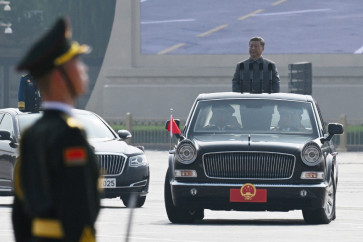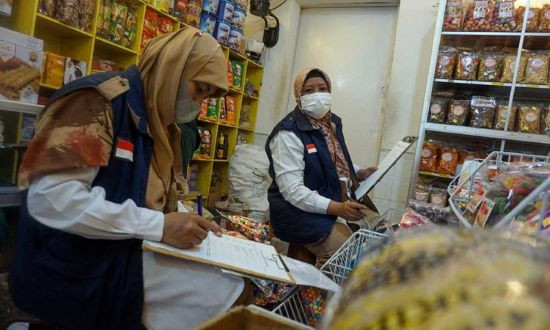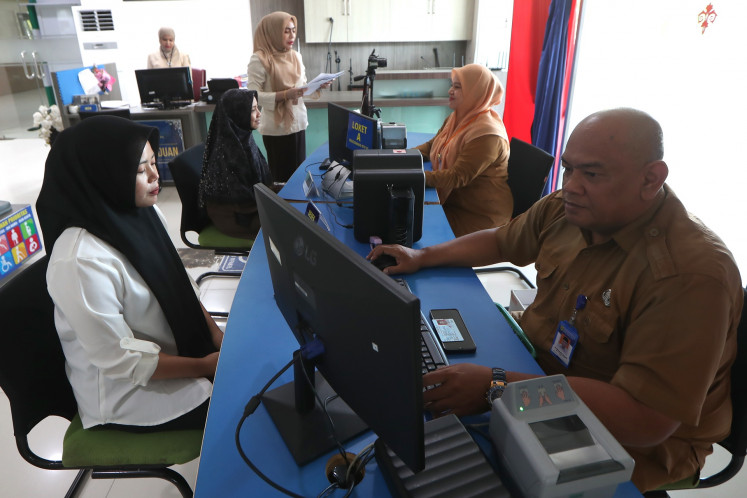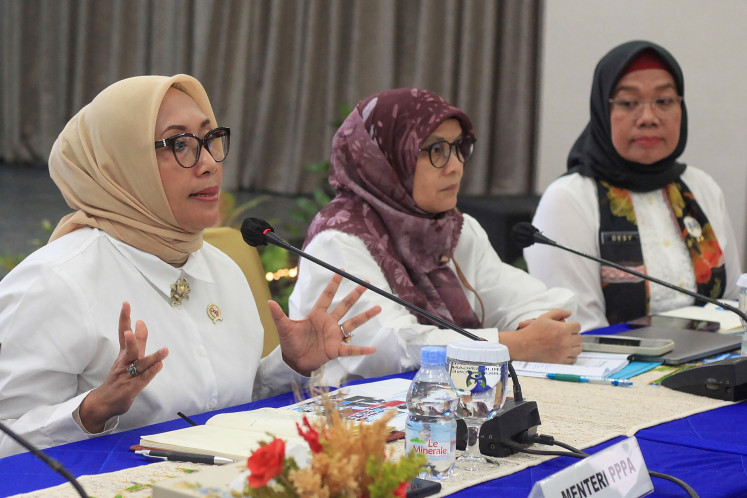Popular Reads
Top Results
Can't find what you're looking for?
View all search resultsPopular Reads
Top Results
Can't find what you're looking for?
View all search resultsJuvenile criminals and the need for restorative justice
“Every child comes with the message that God is not yet discouraged of man” Rabindranath Tagore
Change text size
Gift Premium Articles
to Anyone
“Every child comes with the message that God is not yet discouraged of man” Rabindranath Tagore.
Recent criminal cases involving minors in Palu, Central Sulawesi; Cilacap in Central Java; Denpasar in Bali; and Sijunjung in West Sumatra have become a significant issue during these past few weeks, as they apparently attracted international attention.
Although the technical legal issues in each case may differ — three are still undergoing legal processing while the minor involved in the fourth case was convicted by the court — according to many pundits, all the cases have one thing in common: the state’s alleged failure to protect children’s civil rights.
From a normative, legal standpoint, all individuals are equal before the law. All individuals should therefore be treated equally in accordance to the letter of the law. Nonetheless, human rights law views children as exclusive or, to a certain extent, vulnerable, rights holders.
Based on many international human rights instruments (for instance, the International Covenant on Civil and Political Rights, the Convention on the Rights of the Child, and the Beijing Rules) it is an obligation of the state to preserve children’s rights in every phase of legal proceedings for the sake of, as expressed under the 2002 Child Protection Law, “the best interests of the child”.
To be more specific, under the Child Protection Law, the principle of the best interests of the child consequently requires affirmative action by the state, including the executive, legislative and judicial authorities, to prioritize children’s rights by virtue of their best interests during criminal proceedings.
In particular, the rights shall cover at least a child’s right to life, non-discrimination and access to education.
In relation to this, one emerging alternative concept, which has also been applied by many states in fulfilling such positive treatment to children involved in criminal cases, is a restorative justice program.
In brief, restorative justice can be deemed as a form of legal settlement through (re)harmonizing or resolving the relationship between the victim, the perpetrator and society.
The government has adopted this concept through the enactment of a joint decree by six senior officials, namely the Supreme Court chief, the Attorney General, the National Police chief, the law and human rights minister, the social affairs minister, and the women’s empowerment and child protection minister, concerning the protection of children who are in conflict with the law.
The decree was mainly aimed at creating a common perception and cooperation amongst law enforcement institutions in guaranteeing the preservation of child’s right in a legal process.
Related to this issue, the Civil and Political Rights Research and Development Center at the Human Rights Research and Development Agency of the Law and Human Rights Ministry has conducted comprehensive research on restorative justice programs in juvenile trials in 2011. During the research, which was carried out in Bali, East Nusa Tenggara, West Java and Lampung, the research team found that the joint decree, which should be regarded as a significant norm to provide a restorative justice program, has unfortunately yet to be effectively
implemented.
Based on the research, there are at least four reasons for this. First, the joint decree cannot be considered as law par excellence, thus it cannot derogate current positive law, such as the Indonesian Criminal Code.
Second, there are as yet no specific and comprehensively applied, technical norms in each law enforcement institution that derives from the joint decree. Third, even if there were already such applied and technical norms, law enforcement officers are still very reluctant to use the program. Fourth, the joint decree does not delineate categories of crimes that can be dealt with by a restorative justice program.
In my view, such reluctance on the part of law enforcement officers appears to be justified; therefore, all involved institutions ought to work hand-in-hand to create a more comprehensive restorative justice
program.
Moreover, the joint decree could actually be effectively implemented if there was strong synergy and coordination between, importantly, the police and prosecutors, as both institutions have the authority to control the criminal cases submitted to them.
At this point, the recently announced joint forum of Mahkumjakpol (at the central level) and Dilkumjakpol (at the provincial level), which comprise the Supreme Court, the Law and Human Rights Ministry, the Attorney General’s Office and the National Police, could play a role in creating an integrated effort dealing with children in conflict with the law.
It is also worth noting that in a criminal justice system, restorative justice works at three levels of proceedings: pre-adjudication, adjudication, and also post-adjudication. At the pre-trial level, it is the police who have the authority to settle a dispute outside the judicial process. Police officers thus have some kind of discretionary power to decide on a case by case basis.
At the trial level, through a restorative justice paradigm, the court should give consideration on preserving a child’s rights in sentencing on the crime or crimes committed. Lastly, the post-adjudication level deals with the treatment of a convicted child in order to enable them to restore their relationship with the victim and society.
To sum up, restoring justice, especially upon juvenile criminals, should not be seen as merely a judicial issue. Based on the above understanding, from a human rights point of view, the obligation to preserve a child’s interests belongs to every state authority at the executive, legislative and judicial levels.
The current proposed Juvenile Trial System bill will hopefully be able to offer protection on the basis of restorative justice principles. Finally, as the joint forum of Mahkumjakpol/Dilkumjakpol is yet to be fully tested, any constructive comments, input and evaluations will surely be significant in enhancing our nationally integrated criminal justice system.
The writer is a Rijksuniversiteit Groningen alumnus. He works at the Human Rights Research and Development Office at the Law and Human Rights Ministry. The opinions expressed here are his own.










